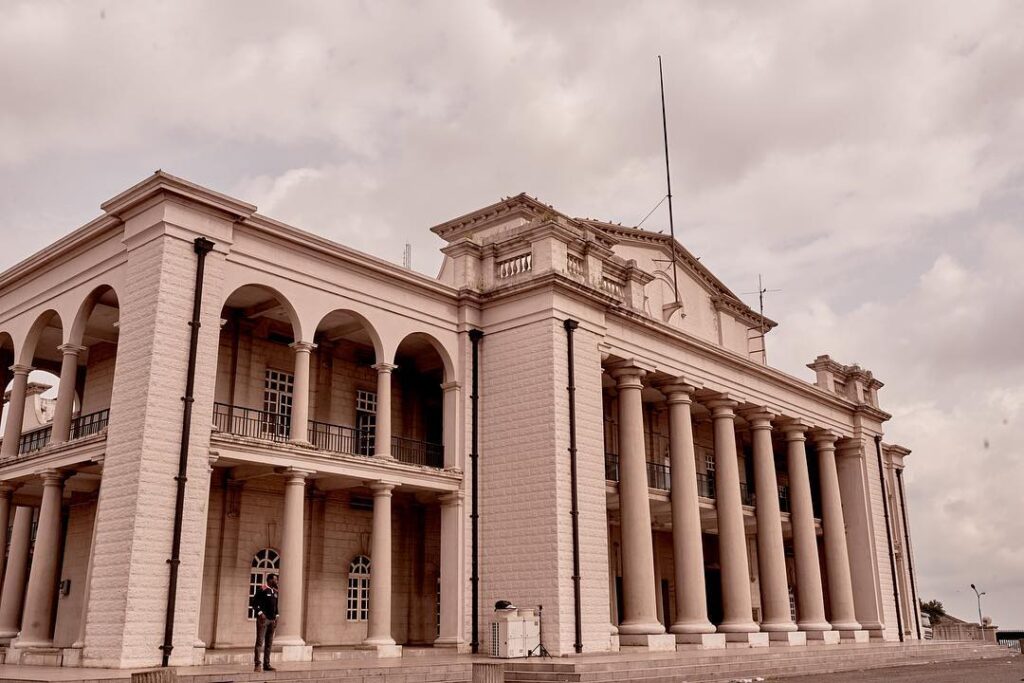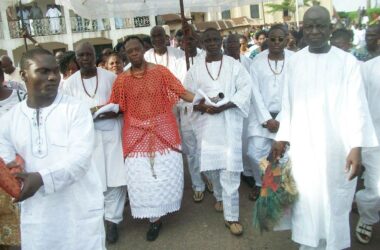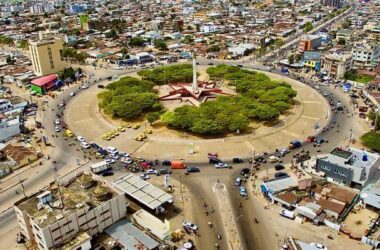Ibadan is one of Nigeria’s most historically significant cities. When people ask, why is Ibadan referred to as an ancient city, they are not just throwing around words.
This title is rooted in its deep historical origins, strategic importance, and enduring legacy. The city’s foundation, geography, and cultural influence all contribute to its status as an ancient city with a rich past that continues to shape its identity today.
The Origins of Ibadan: A City Born from War

Ibadan was founded in 1829 as a war camp by Yoruba warriors from Oyo, Ife, and Ijebu. This was a period of intense conflict in Yorubaland following the collapse of the Oyo Empire. As rival factions and external threats created instability, Ibadan emerged as a military refuge, strategically positioned on seven hills to provide natural protection. It quickly grew into a dominant military and political force, shaping its identity as a stronghold of Yoruba resistance and governance.
The war camp evolved into a structured settlement with defined leadership and military formations. The warriors who originally occupied Ibadan established a system that prioritized defense and expansion, ensuring the city’s longevity and dominance in the region.
The Strategic Location That Defined Its Growth
One of the reasons Ibadan thrived was its geography. The city is situated at the intersection of the forest and savannah, making it an ideal location for settlement and trade. The hills provided defense against potential invaders, while the open plains allowed for agriculture and commerce. This balance between security and economic opportunity enabled Ibadan to grow rapidly, attracting settlers from various Yoruba subgroups.
Ibadan’s location also facilitated trade between the northern and southern regions of Nigeria, making it a central hub for commerce. Markets flourished, and the city became a center for agricultural and textile trading, further solidifying its economic importance.
The Military Powerhouse of the 19th Century
Ibadan was not just another Yoruba city; it was a military state. Unlike many traditional Yoruba kingdoms, where leadership was hereditary, Ibadan operated on a merit-based system where military prowess determined authority. The city successfully resisted the expansion of the Fulani Caliphate in 1840, solidifying its status as a powerful military force. The influence of Ibadan’s warlords extended far beyond its borders, shaping Yoruba politics for decades.
Military expeditions launched from Ibadan played a crucial role in regional conflicts, influencing power dynamics across Yorubaland. The city’s army, made up of warrior elites and foot soldiers, was instrumental in defining Ibadan’s role as a protector of Yoruba interests.
The Role of Lagelu in Ibadan’s History
Ibadan’s foundation is also linked to Lagelu, a legendary military leader from Ile-Ife. He is credited with establishing two of the three settlements that eventually merged to form modern-day Ibadan. The first, Eba Odan, was destroyed by neighboring towns, but Lagelu survived and founded another settlement, Eba’dan, near the ruins of the first. His legacy is still honored in the city’s festivals and traditions.
Lagelu’s leadership and foresight in choosing Ibadan’s strategic location ensured the city’s survival through multiple conflicts. His role in shaping Ibadan as a resilient settlement is celebrated in oral traditions and historical narratives.
Colonial Influence and Expansion
During British colonial rule, Ibadan’s significance only grew. The British recognized its strategic and economic potential, making it the administrative headquarters of the Western Provinces in 1939. The colonial government built infrastructure that solidified Ibadan’s position as a major economic and political hub. Roads, railways, and administrative buildings connected Ibadan to Lagos and beyond, cementing its role in Nigeria’s colonial and post-independence history.
With colonial influence came Western education and governance structures. Ibadan became home to some of Nigeria’s first institutions of higher learning, including the prestigious University of Ibadan, founded in 1948. These developments further entrenched Ibadan’s status as a city of influence.
The Ancient Remnants of Ibadan
Despite modernization, Ibadan retains physical and cultural elements from its past. The city still has remnants of its ancient protective walls, a reminder of its military origins. Traditional compounds, old markets, and historical sites like Mapo Hall reflect the city’s deep-rooted history. The blend of the old and the new makes Ibadan unique, maintaining its reputation as an ancient city while evolving with time.
Landmarks such as Cocoa House, the first skyscraper in West Africa, stand as a testament to Ibadan’s blend of tradition and progress. The city’s architecture, with its mixture of colonial, traditional, and modern designs, continues to tell the story of its historical transformation.
The Role of Ibadan in Nigeria’s Political Landscape
Ibadan has played a crucial role in shaping Nigeria’s political history. It was a focal point in the country’s push for independence, housing key political leaders and hosting significant movements. As the capital of the Western Region in the 20th century, Ibadan became a center for policy formation and political strategy.
Even today, Ibadan remains politically relevant, producing influential leaders and serving as a key player in regional and national decision-making. Its political legacy is a continuation of its ancient status as a city of authority and governance.
Ibadan in the 21st Century
Ibadan may be a bustling metropolis today, but its historical significance is undeniable. The city has preserved its Yoruba heritage while embracing modernization, making it a living testament to Nigeria’s past and future. Its history of warfare, governance, and cultural influence ensures that it will always be remembered as an ancient city that shaped the course of Yoruba civilization.
Cultural festivals, traditional institutions, and historic sites keep Ibadan’s past alive. The city remains an educational hub, with institutions like the University of Ibadan continuing to uphold its legacy of knowledge and leadership.
Conclusion
Ibadan is referred to as an ancient city because of its deep-rooted history, which dates back to its founding as a war camp in 1829. Its origins as a war camp, its strategic location, and its historical significance as a military and economic powerhouse all contribute to its status. The legacy of its founders, its resistance against external threats, and its role in colonial administration further solidify its place in history. While the city continues to modernize, it carries with it the essence of its past, ensuring that its rich heritage is never forgotten.
Its role in Nigeria’s political, educational, and economic development continues to highlight its importance. Ibadan is more than just a city; it is a symbol of resilience, cultural pride, and historical continuity, making it one of the most revered ancient cities in West Africa.
References
- Wikipedia – Ibadan
- Britannica – Ibadan
- Falola, Toyin. Ibadan: Foundation, Growth, and Change, 1830-1960. Cambridge University Press, 2012. Available at: Cambridge University Press.
- Akintoye, Stephen. A History of the Yoruba People. Amalion Publishing, 2010. Available at: Amalion Publishing.
- Ajayi, J. F. Ade. Yoruba Warfare in the Nineteenth Century. Cambridge University Press, 1971. Available at: Cambridge University Press.





